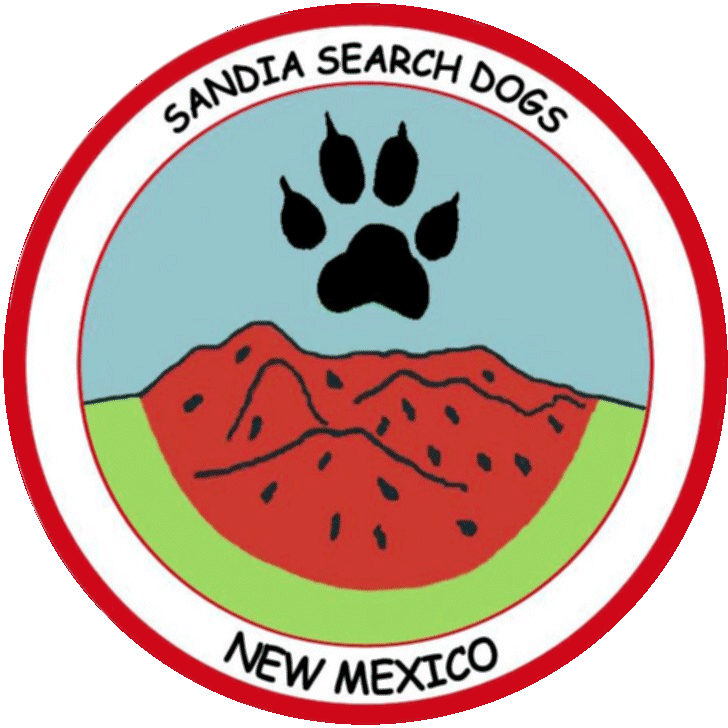Joining
Who may become a member of SSD?
We welcome new members who are interested in training a dog for search and rescue response as a handler or in assisting the group as a field support member. Dog ownership is not mandatory, just a love and respect for the animals and a willingness to work and learn.
As a search team or field unit, the handler concentrates on directing the SAR dogs, while the field support person focus is on land navigation, incident communications and visual searching.
Interested individuals must be age 18 years or older, in good physical condition and capable of matching the team and NM SAR responder minimum gear list requirement. Some experience in hiking and wilderness skills helps provide a foundation to build the field skills needed by the wilderness SAR responder.
Individuals should reside no farther than 30 miles outside the Albuquerque city limits in order to respond readily to SSD trainings and SAR mission assignments.
Candidate dogs must be highly motivated, typically toy crazy or food crazy, non-aggressive, and 2 years of age or younger. All candidate dogs are evaluated for suitability for SAR training before admission to the team.
Important Considerations about Joining
Training and caring for a dog in wilderness SAR, developing the additional skills used by the SAR responder, plus responding to SAR missions are all time consuming and will incur personal expenses and a level of personal risk. Individuals must assess these and other important factors before embarking on SAR dog training.
Time demands are considerable. Developing a dog to mission readiness for search and rescue generally requires 18 to 24 months of frequent and regular training where weekly and bi-monthly team trainings are supplemented by hours of individual training periods with your dog. Trainings and responding to missions during late night and on weekends can also mean time away from the job or the family.
Some dogs may progress months into training and then reach a developmental plateau which falls short of the mission ready dog. SSD routinely applies performance measures to help individuals assess the likelihood of overall training and mission success.
In additional to animal care for dog handlers, all members incur expenses acquiring the boots and clothing, plus specialized gear such as radios and GPS units used by SAR responder, and of course vehicle expenses.
SSD, like other New Mexico SAR teams, responds to searches in all types of weather and often in heavy terrain. A minimum level of physical fitness, equipment and outdoor skills is required for all SAR responders.
The outcome of a SAR mission may not always be pleasant with the rescue of a live and healthy individual. Plus there is risk that your beloved canine partner, you or a team member may suffer injury in performance of wilderness search and rescue.
Our Sandia Search Dog Membership Information provides additional details and a summary of other team requirements.
Contact our Membership Officer
Please contact our Membership Officer with additional questions and to inquire about visiting the team during a local training session. Nothing beats a visit to see our dogs in action and to discuss issues related to canine training and to answer questions you may have.
Sorry, but SSD does not search for lost dogs, pets or other animals.
Check our Training page for a schedule and list of training locations.
Interested in Search and Rescue but Unsure about Joining a Canine Team
In addition to dog handlers and field support personnel, SSD has a need for search subjects and other interested individuals such as members of other search and rescue teams wanting to cross training with a canine team.
SSD also cross trains and participates in other aspects of search and rescue besides canine search. These components include ground search techniques, man-tracking and clue awareness, wilderness first aid, litter evacuation, land navigation with map, compass and GPS, radio communications, and incident command system (ICS).
Our Resources page provides links to other local teams and to general information about New Mexico Search and Rescue. Check there if your interest leans toward other aspects of wilderness search and rescue, such as heavy terrain technical rescue or specialized communications and other incident base support.

